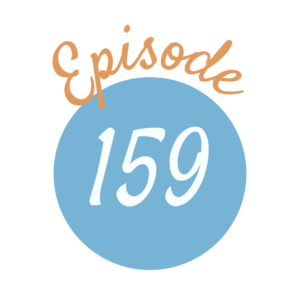
The subject of composition perplexes because Charlotte Mason required
it and yet discouraged its instruction. How does a teacher abide by her principles and fulfill these requirements? This episode analyzes her principles of writing skill and instruction and traces its development through the forms.
Listen Now:

“In fact, lessons on ‘composition‘ should follow the model of that famous essay on “Snakes in Ireland”–“There are none.”…Our business is to provide children with material in their lessons, and, leave the handling of such material to themselves.” (1/247)
“[L]et us perceive that our relations with each other are the relations of spirit with spirit, and that spoken and written words are no more than the outward and visible signs of ideas spiritually conveyed…” (2/135)
“Before they are ten, children who have been in the habit of using books will write good, vigorous English with ease and freedom; that is, if they have not been hampered by instructions.” (1/247)
“The first buttercup in a child’s nature note book is shockingly crude, the sort of thing to scandalise a teacher of brush-drawing, but by and by another buttercup will appear with the delicate poise, uplift and radiance of the growing flower.” (6/217)
“‘Composition’ is never taught as a subject; well-taught children compose as well-bred children behave–by the light of nature.” (3/286)

A New Grammar of the English Tongue
(Contains Affiliate Links)

Episode 50: Writing: Grammar and Composition

In the exams for the upper years, I see “write an essay . . . .” and I’m wondering what is meant by this. Is this the same as the typical essay we were taught to write in school or was this something different in CM time? I guess I’m feeling like an essay is a taught in a formula way of writing and doesn’t seem to fit. I’m struggling to wrap my head around essays in a CM education.
Cassie,
An essay is a certain genre of writing, like novel or poem. It is literally a short piece of writing on a subject. There is no one form or formula or style. In the three upper forms, Miss Mason assigned
many kinds of essays for the students to read and thus their experience and knowledge of that genre was instructed. Francis Bacon was the first to pioneer that genre and his essays are well crafted
and defined. By the nineteenth century, a short essay was 10 thousand words and most were the length of the modern day novella, a newer genre in writing. Like language, various forms of communicating that
language evolve over generations in culture. Miss Mason trusted to the child’s own person and knew that as he took in ideas and reproduced his own, his writing would reflect his own voice and mind. There is nothing to fear in allowing your children to experiment with mimicking many famous essayists until he comes up with his own best expression of his own thoughts on a subject.
-Liz
What are your thoughts on assigning research papers? 5-10 pages? If that is something we should do, are there any sources for instruction that you would recommend? If they should be writing them, how can they possibly get that much writing accomplished in the short amount of time given to composition weekly? I’m not at all concerned with voice and originality as both of my older children have developed this wonderfully through their CM education, but it is the longer research paper that has me shaking in my boots. As so much emphasis is put on writing papers for college courses, it seems like it would be prudent to have our children write several longer papers. Thank you for tackling this topic for us.
Laura,
There is no reason to “shake in your boots.” Learning to do a research paper is a valuable experience for a college-bound (or any) student and you can work on that in the last year of high school. I believe I
would handle it in the schedule just as any other task, one week at a time, one 40 minute lesson at a time. It would probably be the work of an entire term. Obviously in college the subjects are limited and
there is more free time for a student to spend for reading and research writing, but hopefully he will still have this habit of short focused attention to accomplish that large assignment. There are any number of sources for guidelines, but I think you will find a student with originality and a good writing voice, who has spent years narrating and reading, not to find this a daunting task. Perhaps you could introduce it by having them read a research paper or two before doing their own to see how footnotes and bibliography are documented.
Liz